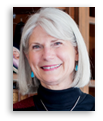
The heading “fame/celebrity” just got an influx of new entries from an article I recently read in the New York Review of Books entitled “How to Become a Celebrity.” As a biographer, the way my subjects handle being famous provides a wonderful window into their personalities. Some bask in the spotlight; others shun it.
Edith Wharton was a particularly difficult subject because her Old New York upbringing had trained her to avoid the public eye. Even before her breakaway book The House of Mirth was published in 1905, she sensed that her letters and personal papers would someday be read by the public. Most of her archival papers seemed very guarded to me. The recent discovery and publication of letters from Wharton’s young years, edited by Irene Goldman-Price was a refreshing glimpse into a more unguarded Edith Wharton.
Whatever I happen to be working on – currently a biography of Emily Post – is never far from my mind as I go trawling for quotes. So, of course, I started thinking about how Emily handled celebrity and the public/private parts of her life. She somehow managed to keep them clearly delineated, even while her 9 editions of Etiquette (published between 1922 and 1960) were highly revealing. How did she keep that line so clear? How did she speak and write on such personal subjects as life at home, at parties, and at weddings and funerals while keeping her “walls up” as she put it?
I stumbled on a quote attributed to John Maynard Keynes (“When the facts change, I change my mind. What do you do, sir?”) that helped me as I grappled with Emily’s ability to adapt to the changing culture and technology around her while never wavering from her core philosophy. The fact that an economist could shed light on a writer of etiquette books shows how unexpected and crazy the connections can be. Keeping an eye out for quotes (with your current work firmly in mind) is a great way to tap into a connection no one has ever seen before.
Keep a quote file. Read over your entries from time to time. It can be a goldmine!
—
Connie Nordhielm Wooldridge, Author

- Just Fine They Way They Are (Calkins Creek, March 1, 2011)
- The Brave Escape of Edith Wharton (Clarion Books, 2010)
- Thank You Very Much, Captain Ericsson! (Holiday House, 2005; Berndtsdotter Books, 2012)
- When Esther Morris Headed West (Holiday House, 2001)
- The Legend of Strap Buckner (Holiday House, 2001)
- Wicked Jack (Holiday House, 1995)
Speaker / Presenter
Connie is an experienced speaker and presenter who enjoys sharing her passion for writing and her experience as a writer with readers and writers of all ages. She has presented to students, community, civic and professional organizations, writing groups, library audiences, and seniors – wherever book lovers gather!
>> More Information About Connie Speaking and Presenting

